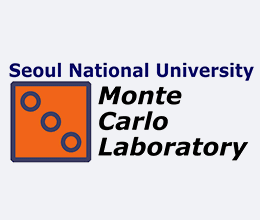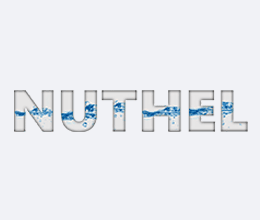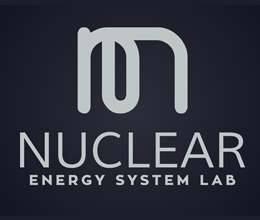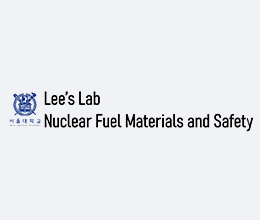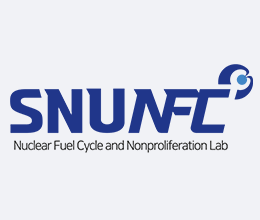Monte Carlo Laboratory
- · Professor : Hyung Jin Shim
- · Phone : 02-880-7203
- · Location : 36-206
- · Homepage : http://mcl.snu.ac.kr
Monte Carlo Lab is conducting developments of neutron transport analysis codes, advanced reactor designs, research reactor analyses. The lab has developed a Monte Carlo neutron transport analysis code, McCARD. Using McCARD, it has performed neutron transport analyses for various reactor types including pressurized water reactors, fast reactor, high-temperature gas cooled reactors, molten salt reactors, research reactors. The lab is developing a GPU-enhanced McCARD version, McCARD/G for the advanced reactor design and analysis, deterministic load-following methodologies, PINN-based core analysis methods, power planning code, addressing a wide range of issues.
Nuclear Thermal-Hydraulic Engineering Laboratory
- · Professor : Hyung Kyu Cho
- · Phone : 02-880-8978
- · Location : 31-205 / 31-207 / 31-210 / 31-1-1 / 131-108
- · Homepage : https://nuthel.com
Nuclear Thermal-Hydraulic Engineering Laboratory researches the thermal-hydraulic phenomena occurring in nuclear power systems to ensure the safe utilization of nuclear energy. To enhance the safety and reliability of nuclear systems, we conduct high-fidelity experiments, two-phase flow simulations using high-performance computing, and multiphysics analysis in cooperation with the neutronics and materials science fields. Based on these analytical and experimental technologies, we are conducting research not only on the safety of light water reactors but also on advanced nuclear systems, such as floating reactors and heat pipe reactors.
Nuclear Energy System Laboratory
- · Professor : Eung Soo Kim
- · Phone : 02-880-7209
- · Location : 31-105
- · Homepage : https://snueslab.com
The Nuclear Energy System Laboratory (ESLAB) is conducting various research using the innovative engineering technology to overcome the challenges of nuclear systems and safety. The ESLAB is developing advanced modeling/simulation technology and computational analysis solutions to address various issues related to nuclear systems & safety using computational science and high-performance computing. Additionally, The ESLAB are conducting various research and developing key technologies related to the future nuclear systems and their applications through creative ideas.
Reactor Physics Laboratory
- · Professor : Han Gyu Joo
- · Phone : 02-880-7211
- · Location : 36-207
- · Homepage : http://neutron.snu.ac.kr/
The Reactor Physics Laboratory focuses on research in reactor physics analysis, dealing with various physical phenomena that affect neutron behavior within a reactor, which plays a key role in nuclear power generation. Using the whole-core transport analysis code nTRACER, the laboratory has conducted analyses of various real pressurized water reactors and has also applied the code to analyze fast reactor cores.
Subsequently, by incorporating GPU-accelerated high-performance computing, the laboratory has developed various analysis codes, including the pin-wise core analysis code VANGARD and the continuous-energy Monte Carlo analysis code PRAGMA, alongside nTRACER, to conduct a wide range of research projects.
Recent studies extend beyond pressurized water reactors to include multi-physics coupled analysis of advanced reactor models. A notable example is the research on the PRAGMA-OpenFOAM-ANLHTP coupled analysis framework for heat pipe reactor analysis.
Subsequently, by incorporating GPU-accelerated high-performance computing, the laboratory has developed various analysis codes, including the pin-wise core analysis code VANGARD and the continuous-energy Monte Carlo analysis code PRAGMA, alongside nTRACER, to conduct a wide range of research projects.
Recent studies extend beyond pressurized water reactors to include multi-physics coupled analysis of advanced reactor models. A notable example is the research on the PRAGMA-OpenFOAM-ANLHTP coupled analysis framework for heat pipe reactor analysis.
Nuclear Fuel Materials and Safety Laboratory
- · Professor : Youho Lee
- · Phone : 02-880-8281
- · Location : 31-1-1 / 31-1-402 / 31-1-402B
- · Homepage : https://fuel.snu.ac.kr/
Our research is dedicated to solving the most important challenges of fission reactor technology through a system-oriented approach to nuclear fuel materials. Nuclear fuel engineering is not only fundamental to the advancement of nuclear reactor technology but also crucial in determining the pace of innovation in nuclear power. However, the complexities of fuel material behavior, coupled with the high demands placed on its performance predictability, often serve as the bottleneck for realizing advanced nuclear reactors. We address this challenge through a holistic approach. By integrating material science and engineering with reactor engineering, utilizing both experimental and computational methods, we demonstrate a unique and highly effective research approach tailored to address the pressing challenges of nuclear reactor technology today. Our multidisciplinary expertise, combined with a solid understanding of nuclear fuel materials, enables us to extrapolate reactor-scale implications and define technological directions from microscopic material behavior.
Nuclear Fuel Cycle and Nonproliferation Laboratory
- · Professor : Sungyeol Choi
- · Phone : 02-880-7217
- · Location : 36-304, 36-306 / 32-109, 36-305
- · Homepage : https://www.snunfc.com/
Here at Seoul National University's Nuclear Fuel Cycle and Nuclear Non-Proliferation Laboratory (SNUNFC) we stand at the forefront of academic-led Next-Generation Nuclear Energy and Waste Management Research & Development.
Across a range of topics covering the entire nuclear fuel cycle SNUNFC strides to push the boundaries of recycling, storage and disposal of spent nuclear fuel technologies; develop cutting edge technological solutions to chemical and material degradation issues in extreme environments; and harness the economic benefits of resource recovery and waste valorisation practacies to support industry 4.0 advances; all the while supporting nuclear and non-proliferation policy and decision making endevours to help support Korea’s long-term national goals.
We are a promidently experiment-driven interdisciplinary research group comprised of domestic and international researchers, from undergraduates to post doctorates, with strong national and international links to both academia and industry alike.
In this laboratory, we are (1) conducting experiments to investigate the chemical reactions of elements and fission products and analyze the behavior of nuclear materials in various environments (melt, ionic liquids, hydrochemistry, etc.) encountered in nuclear power generation and nuclear fuel cycle processes, with a particular focus on electrochemical measurements and pulse laser spectroscopy; (2) conducting research to model multiple chemical-physical phenomena found throughout the nuclear fuel cycle including heat, flow, mass transfer, chemical reactions, corrosion, and radiation decomposition using experimetal data such as the physical properties collected through experiments and reaction constants, with a particular focus on understanding geological dispoal environments; (3) evaluating current and developing new wasteform materials for legacy and Gen IV nuclear wastes that meet domestic and international waste acceptance criteria, with a particular focus on non-destructive X-ray Computed Tomography; (4) experimenting with emerging advanced chemistry methodologies (hydrometallurgy and solvometallurgy) for waste valorisation and resource recovey options; with a paricular focus on deep eutetic solvents and metal extraction techniques; (5) developing power useage models and policy-focused regulatory frameworks to ensure access to safe, clear power generation, with a particular focus on the national energy mix and infrastructure siting.
We exist to advance the nuclear industry by providing an academically stimulating and stable environment to develop and nurture future generations of talented leaders and researchers in the nuclear energy sector across academia and industry.
Let us build safer and more efficient nuclear energy technologies together!
Across a range of topics covering the entire nuclear fuel cycle SNUNFC strides to push the boundaries of recycling, storage and disposal of spent nuclear fuel technologies; develop cutting edge technological solutions to chemical and material degradation issues in extreme environments; and harness the economic benefits of resource recovery and waste valorisation practacies to support industry 4.0 advances; all the while supporting nuclear and non-proliferation policy and decision making endevours to help support Korea’s long-term national goals.
We are a promidently experiment-driven interdisciplinary research group comprised of domestic and international researchers, from undergraduates to post doctorates, with strong national and international links to both academia and industry alike.
In this laboratory, we are (1) conducting experiments to investigate the chemical reactions of elements and fission products and analyze the behavior of nuclear materials in various environments (melt, ionic liquids, hydrochemistry, etc.) encountered in nuclear power generation and nuclear fuel cycle processes, with a particular focus on electrochemical measurements and pulse laser spectroscopy; (2) conducting research to model multiple chemical-physical phenomena found throughout the nuclear fuel cycle including heat, flow, mass transfer, chemical reactions, corrosion, and radiation decomposition using experimetal data such as the physical properties collected through experiments and reaction constants, with a particular focus on understanding geological dispoal environments; (3) evaluating current and developing new wasteform materials for legacy and Gen IV nuclear wastes that meet domestic and international waste acceptance criteria, with a particular focus on non-destructive X-ray Computed Tomography; (4) experimenting with emerging advanced chemistry methodologies (hydrometallurgy and solvometallurgy) for waste valorisation and resource recovey options; with a paricular focus on deep eutetic solvents and metal extraction techniques; (5) developing power useage models and policy-focused regulatory frameworks to ensure access to safe, clear power generation, with a particular focus on the national energy mix and infrastructure siting.
We exist to advance the nuclear industry by providing an academically stimulating and stable environment to develop and nurture future generations of talented leaders and researchers in the nuclear energy sector across academia and industry.
Let us build safer and more efficient nuclear energy technologies together!


